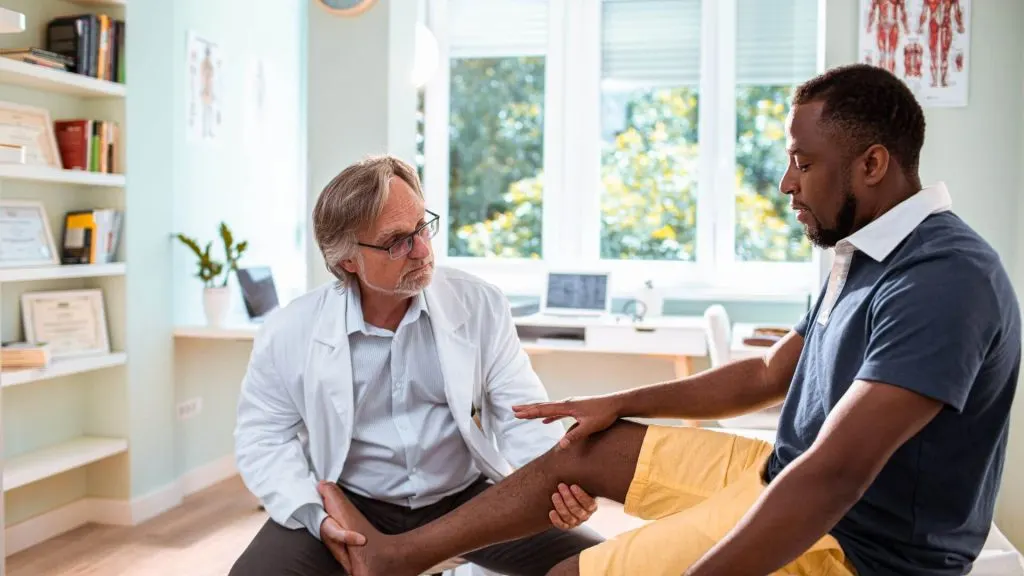Going to the doctor can be a daunting experience, especially if you’re not sure what to expect. Most people only go to the doctor when they are feeling sick, so they may not know what preparations need to be made. In this blog post, we will discuss six things that you should do before going to see your doctor. This will help make the process smoother and less stressful for both you and the doctor!
What to Do Before Going To A Doctor

Visiting the doctor can be a stressful experience. To make the process more smooth, you can always prepare before leaving. Now, when visiting our doctor, it would be advisable to prepare upfront some questions, or some information you want to discuss with your doctor. It is also important to know your medical history or the medical history of your family. This will give your doctor a better understanding of what might be wrong, and how to treat you better. All of the information is important both for the billing process, as well as for the insurance companies. Hence, if you are not comfortable with sharing all of this information, you can always ask the doctor’s office to help you fill out the paperwork. The process of seeing a doctor can be very different from person to person.
Make a list of your symptoms
Be sure to write down all of your symptoms, even if they seem unrelated. This will help your doctor determine what is wrong and rule out any potential causes. If you have any chronic conditions, be sure to mention them as well. It can always be helpful to keep a journal of your symptoms leading up to the appointment so that you can refer back to it. Furthermore, be prepared to answer questions about your lifestyle and habits. This includes things like diet, exercise, alcohol consumption, and smoking.

Make a list of all the medications you are currently taking
Be sure to include over-the-counter medications, vitamins, and supplements. This is essential because certain medicines may combine to produce severe consequences. Your doctor will also need to know if you have any allergies to medication. If you have any chronic conditions, be sure to mention them as well. Having a list of symptoms can help you avoid forgetting something important to note to your doctor and can help your doctor better understand what might be wrong.
Make a list of any allergies you have
This includes both allergies to medication and other substances. Be sure to mention anything that causes you swelling, hives, difficulty breathing, or any other reaction. Any form of chronic allergies should also be mentioned. Allergies are important to mention because they can help your doctor rule out potential causes of your symptoms. If you have allergies that are not well-controlled, it is also important to mention this so that your doctor can help you find a better way to manage them. For instance, anaphylaxis is a severe and potentially life-threatening allergic reaction that requires immediate medical attention. If you have ever had an anaphylactic reaction, be sure to tell your doctor so that they can find the right approach to your treatment.

Write down any questions you have for the doctor
This is your chance to get answers to any questions or concerns you have about your health. It can be helpful to write these down in advance so that you don’t forget anything during the appointment. This also means that you should not refrain from asking any of the questions that you might want to know the answers to. Your doctor should be able to explain things in a way that you can understand. Some common questions people have for their doctor include:
- What are the potential causes of my symptoms?
- What are the possible treatment options?
- What risks and side effects can be associated with the treatment options available to you?
- How long will it take for my symptoms to improve?
- When should I come back for a follow-up appointment?
Gather your medical records, if possible
If you have seen a doctor for your symptoms before, it can be helpful to bring along your old medical records. This will give the new doctor a better understanding of your medical history and what has been tried in the past. It is also important to bring along any imaging studies (such as X-rays or MRIs) that have been done. Some medical records can be obtained electronically, so it is worth checking with your previous doctor’s office or hospital in advance to see if this is an option. On the other hand, if you are seeing a specialist, it is also important to get a referral from your primary care doctor.

Bring a friend or family member with you for support
It can be helpful to have a friend or family member come with you to your doctor’s appointment. They can offer emotional support and can help you remember what was discussed during the appointment. Additionally, they may be able to provide insight into your symptoms that you had not thought of before. Having someone else there with you can also be helpful if you have difficulty understanding something that was said. If you do not have anyone who can come with you, don’t hesitate to ask the doctor to explain things in a different way or to provide written information about your diagnosis and treatment.
Going to the doctor can be overwhelming, but it doesn’t have to be. By preparing in advance, you can ensure that you get the most out of your appointment. With these six tips, you can be sure that you are ready for anything.

Jessi is the creative mind behind The Coffee Mom, a popular blog that combines parenting advice, travel tips, and a love for all things Disney. As a trusted Disney influencer and passionate storyteller, Jessi’s authentic insights and relatable content resonate with readers worldwide.

Medical Tips to Help You Live a Carefree Life
Tuesday 16th of May 2023
[…] environment in your bedroom. If you still can’t seem to fall asleep or stay asleep, talk to your doctor about possible sleep disorders or medications that could […]